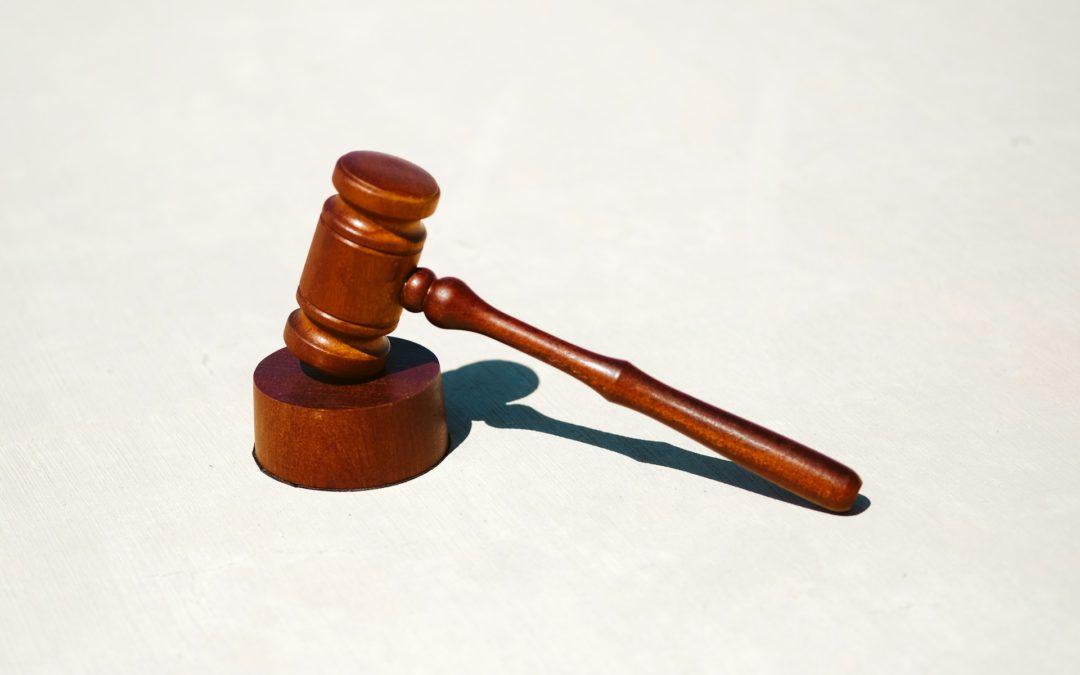Understanding judgment and its impact in our daily interactions is crucial. This article presents 30 vivid examples of judgment, offering a comprehensive guide and practical tips to navigate through them. Judgment, in its essence, is the process of forming an opinion or conclusion about something or someone. It’s an inherent part of human nature, often shaping our responses and decisions in both personal and professional contexts. However, the way we judge and are judged can have profound implications, influencing relationships, workplace dynamics, and even our self-esteem.
To provide a clearer picture, the article breaks down judgment into various scenarios, ranging from everyday situations to more complex interpersonal interactions. Each example is carefully curated to reflect the diversity and complexity of judgment in real-life situations. The article not only highlights the nature of judgment but also offers insightful tips on how to approach and manage it effectively. By the end of this guide, readers will have a better understanding of how to discern judgment, respond to it constructively, and use it to foster positive outcomes in various aspects of their lives.
What is Judgment?
Judgment, often spelled as ‘judgement’, is the cognitive process of reaching a decision or forming an opinion after considering the available information and weighing evidence. It involves the evaluation of facts, the application of logic, and the use of reasoning skills to form a conclusion or make a decision. Judgments can be made in various contexts, including legal, ethical, personal, and professional scenarios. This process is crucial in decision-making and problem-solving, as it helps individuals and organizations to choose between multiple options or determine a course of action based on the most relevant and reliable information available.
In a broader sense, judgment encompasses the ability to think critically, discern truths from falsehoods, and assess the implications of different choices. It often requires balancing subjective values with objective facts, and can be influenced by personal biases, cultural norms, and societal expectations. Good judgment is characterized by fairness, rationality, and the capacity to foresee the consequences of one’s decisions. It is a skill that can be honed through experience, education, and reflection. In legal terms, a judgment also refers to the formal decision or ruling given by a judge or court at the end of a legal proceeding, which determines the outcome of the case based on the evidence and legal arguments presented. Whether in daily life or specialized fields, the exercise of sound judgment is essential for navigating complex situations and achieving desirable outcomes.
Additionally, judgment plays a pivotal role in ethical considerations, guiding individuals in discerning right from wrong and shaping moral conduct. It’s a fundamental aspect of human psychology, influencing how we interact with others and our environment. In the context of professional settings, judgment is crucial for leadership and management, as it affects decision-making processes, problem-solving abilities, and the management of resources and personnel.
Effective judgment often involves a balance of intuition and analytical thinking. Intuition, or gut feeling, is the ability to understand something instinctively without the need for conscious reasoning. While valuable, relying solely on intuition can be misleading. Analytical thinking, on the other hand, involves a systematic and logical approach to breaking down complex problems into smaller, more manageable parts. Combining these two aspects can lead to more comprehensive and effective decision-making.
The Best Examples of Judgment
1. Movie Critique – I found the movie to be captivating, with its gripping storyline and well-developed characters. The cinematography and soundtrack enhanced the overall experience for me. However, my friend had a different perspective, judging the movie as boring. They felt that the plot was predictable and the pacing was too slow for their liking. It’s interesting how individual preferences and expectations can shape our judgements of a film.
2. Restaurant Review – The dining experience was a mix of delight and disappointment. The food was undoubtedly delicious, showcasing a harmonious blend of flavors and quality ingredients. However, the service received a harsh judgement due to slow response times. Despite the culinary excellence, the overall satisfaction was marred by a lack of attentiveness from the staff. This highlights the crucial role that service plays in shaping the overall impression of a restaurant.
3. Book Evaluation – The novel elicited varied judgements from readers. Some praised the intricate plot twists that kept them on the edge of their seats, while others criticized the character development as lacking depth and relatability. The mixed judgements highlight the subjective nature of literature appreciation, where individual tastes and expectations play a significant role in forming opinions about a book.
4. Fashion Opinion – In her judgement, the outfit was deemed too casual for the formal event. This reflects not only personal style preferences but also an understanding of appropriate attire for different occasions. Fashion judgements often stem from societal norms and expectations, influencing how individuals perceive and evaluate clothing choices in various contexts.
5. Artistic Assessment – The painting evoked strong judgements, revealing the subjective nature of art appreciation. Some found it profound, praising the artist’s creativity and emotional depth, while others dismissed it as abstract nonsense, failing to connect with its unconventional style. Artistic assessments are inherently diverse, shaped by individual interpretations and personal connections to the artwork.
6. Job Performance Review – The employee’s dedication and hard work were key factors in earning positive judgements from the supervisor. Their commitment to tasks, problem-solving skills, and collaboration contributed to a favorable performance review. This example emphasizes how professional judgements are often grounded in tangible achievements and the impact of an individual’s contributions to the workplace.
7. Educational Evaluation – The teacher’s judgement of the student’s essay was critical, pointing out its lack of depth and critical analysis. This reflects the educator’s expectation for comprehensive understanding and analytical thinking. Educational evaluations are subjective to some extent, as teachers bring their own perspectives and standards to the assessment process.
8. Sports Commentary – The referee’s judgement on a particular call became a point of contention, with both teams questioning its fairness. Sports commentary is rife with subjective judgements that can influence the outcome of a game. The interpretation of rules and the application of judgements by officials can significantly impact the dynamics and fairness of a sporting event.
9. Travel Experience – Despite the judgements of some tourists, I personally found the city to be charming and full of cultural richness. This highlights the subjectivity of travel experiences, where individual preferences and interests shape perceptions. What one person judges as unappealing may be a source of fascination for another.
10. Technology Review – The phone received favorable judgements for its sleek design, innovative features, and user-friendly interface. However, it faced criticism for its battery life, a crucial aspect for many users. This example illustrates how a product’s overall reception can be influenced by a combination of positive and negative judgements, emphasizing the importance of balancing various aspects in technology reviews.
11. Political Analysis – People’s judgements on the government’s policies were divided, reflecting the inherent diversity of political ideologies within a society. This example underscores the complexity of political analysis, where individuals assess policies through the lenses of their values, beliefs, and personal experiences.
12. Environmental Assessment – Scientists made judgements about the impact of climate change based on extensive research. This demonstrates the importance of evidence-based judgements in scientific assessments. Environmental judgements often involve complex data analysis and interdisciplinary collaboration to understand the implications of environmental changes.
13. Friendship Dynamics – Her judgement of the situation led her to question the loyalty of her friend. This example delves into interpersonal dynamics, highlighting how judgements can influence relationships. Trust and loyalty are often subject to individual perceptions, and a single judgement can significantly impact the dynamics of a friendship.
14. Health and Fitness – Personal judgements about body image can greatly influence one’s well-being. This emphasizes the psychological aspect of health and fitness, where self-perception and judgements play a crucial role in shaping lifestyle choices and overall mental and physical well-being.
15. Economic Outlook – Economists provided judgements on the market, predicting a potential downturn. Economic forecasts involve a complex analysis of various indicators, and judgements from experts can influence investor confidence and government policies. The subjectivity in economic judgements is evident as different economists may interpret data differently, leading to varied predictions.
16. Social Media Content – The influencer faced harsh judgements for promoting a controversial product. This situation underscores the power and responsibility that influencers hold in shaping public opinions. The negative judgements indicate a heightened awareness among followers regarding ethical considerations, authenticity, and the potential impact of product endorsements on societal values.
17. Scientific Discovery – The new research findings were met with positive judgements from the scientific community. This signifies the rigorous evaluation that scientific work undergoes within the academic realm. Positive judgements in this context reflect the credibility, methodology, and potential contributions of the research to the existing body of knowledge.
18. Parenting Decisions – Different parents may have varying judgements on the appropriate age for certain privileges. Parenting decisions are highly subjective, and influenced by cultural, societal, and individual beliefs. Varying judgements highlight the diversity in parenting styles and the constant negotiation between granting independence and ensuring a child’s safety.
19. Legal Verdict – The jury’s judgement was unanimous in finding the defendant guilty of the crime. Legal judgements play a critical role in upholding justice and maintaining societal order. In this case, a unanimous decision suggests a compelling presentation of evidence that led the jury to a shared conclusion regarding the defendant’s culpability.
20. Ethical Dilemmas – Individuals may make different judgements when faced with morally challenging situations. Ethical dilemmas often lack clear-cut answers, and personal values, beliefs, and situational factors can lead to diverse judgements. This complexity highlights the need for nuanced ethical discussions and an understanding of the subjective nature of moral decision-making.
21. Music Review – The band’s latest album received mixed judgements, with some praising the experimentation and others longing for their old sound. Music reviews reflect the subjective nature of artistic expression. The mixed judgements illustrate the challenge that artists face in balancing innovation with meeting the expectations of their audience, showcasing the diversity of musical tastes.
22. Customer Satisfaction – The company’s judgement of customer needs led to the development of a more user-friendly interface. This example highlights the importance of customer feedback in business decisions. A company’s judgement of customer needs is crucial for product development and maintaining a competitive edge in the market.
23. Culinary Preferences – In my judgement, spicy food is an exhilarating experience, while others may find it unbearable. Culinary preferences are deeply personal and influenced by cultural background, tolerance for flavors, and individual taste buds. Varying judgements on spice levels showcase the diverse sensory experiences associated with food.
24. Social Issues – Public judgements on societal problems often influence policy changes. The collective judgements of a society shape its values and priorities, influencing the political and social landscape. This example underscores the dynamic relationship between public opinion and the development of policies addressing pressing social issues.
25. Personality Traits – First impressions are often based on quick judgements about someone’s character. Initial judgements play a significant role in shaping social interactions. While first impressions can be insightful, they also highlight the challenge of forming accurate judgements based on limited information, emphasizing the importance of open-mindedness.
26. Innovation Assessment – Tech enthusiasts passed positive judgements on the latest gadget, hailing it as a game-changer. Innovation assessments in the tech realm are often driven by expectations of improved functionality and enhanced user experience. Positive judgements indicate the potential influence of technology on daily life and the excitement surrounding advancements.
27. Community Development – Local residents may have differing judgements on proposed changes to their neighborhood. Community development involves navigating diverse perspectives and addressing the unique needs of residents. Varying judgements highlight the challenge of achieving consensus in community planning and the importance of inclusive decision-making processes.
28. Historical Interpretation – Historians make judgements about the significance of events based on their impact on society. Historical interpretations involve analyzing the context, motivations, and consequences of events. The subjective nature of historical judgements emphasizes the importance of diverse perspectives in constructing a comprehensive understanding of the past.
29. Fashion Trends – Judgements about style can vary widely, with some embracing the latest trends and others sticking to classic looks. Fashion trends reflect individual expression and cultural influences. Varying judgements on style underscore the diversity in personal aesthetics and the ever-changing nature of fashion preferences.
30. Self-Reflection – Our judgements of ourselves can profoundly influence our self-esteem and personal growth. Self-reflection involves evaluating our actions, beliefs, and experiences. Positive self-judgements can contribute to healthy self-esteem while acknowledging areas for improvement fosters personal growth and development.
Importance of Judgment
The importance of judgment in our lives is akin to the role of a compass on a ship navigating the vast ocean. It’s more than just making decisions; it’s about making the right decisions, those that steer us toward success and away from pitfalls. Every day, we are bombarded with a myriad of choices, from the mundane to the life-altering. The quality of our judgment in these moments shapes the trajectory of our lives.
At its core, judgment is the process of evaluating information and predicting outcomes. It’s an intricate dance of logic, experience, and sometimes, intuition. Think of it like a mental toolkit. When we face a problem, we delve into this toolkit, drawing on past experiences, values, knowledge, and reasoning skills to find a solution. This is why two people, given the same information, can arrive at entirely different conclusions. Our judgments are as unique as our fingerprints, colored by our individual experiences and worldviews.
In a world where information is plentiful but wisdom is scarce, the ability to discern truth from falsehood is more critical than ever. We live in an age where facts are often intertwined with opinions and misinformation. Good judgment helps us navigate this complex information landscape, enabling us to identify reliable sources and make decisions based on sound evidence.
Judgment also plays a crucial role in our social interactions. It’s not just about what we think, but how we express it. It involves understanding the perspectives of others, predicting the impact of our words and actions, and acting in a way that is respectful and considerate. It’s about knowing when to speak, when to listen, and when to act.
But judgment is not an innate talent; it’s a skill, honed through trial and error, reflection, and learning. It grows as we expose ourselves to new experiences and viewpoints. It sharpens as we learn to question our assumptions and consider the consequences of our actions. In this sense, judgment is a lifelong journey, not a destination.
As we grow and navigate through life’s challenges, our judgment evolves. It becomes more than a tool; it becomes a guide. It helps us build relationships, pursue careers, and make choices that align with our goals and values. In essence, good judgment is the unseen architect of our destiny.
In conclusion, judgment is the silent guardian of our choices, the invisible hand guiding our decisions. It is not just important; it is indispensable. As we journey through life, let us cultivate our judgment with care, for it is the bedrock upon which our lives are built.
Pros of Judgment
Decision-Making – Judgement plays a crucial role in decision-making, acting as a guiding force that helps individuals assess various options and determine the most appropriate course of action in different situations. Whether faced with complex choices or everyday decisions, the ability to exercise sound judgement enables individuals to weigh the pros and cons, consider potential outcomes, and make informed choices aligned with their goals and values. It serves as a mental process that aids in navigating the myriad decisions encountered in both personal and professional life.
Critical Thinking – The promotion of critical thinking is a significant advantage of judgement. Judgement encourages individuals to engage in thoughtful analysis, enabling them to scrutinize information, identify patterns, and make informed evaluations. By cultivating critical thinking skills, judgement empowers individuals to approach challenges with a discerning mindset, fostering a deeper understanding of issues and promoting intellectual growth. This intellectual acumen is valuable in academic, professional, and personal contexts, where thoughtful analysis is key to making well-rounded decisions.
Risk Assessment – Judgement is instrumental in the assessment of risks and benefits associated with various choices. It provides individuals with the ability to weigh potential advantages against possible drawbacks, allowing them to make choices that align with their overarching goals and values. In situations involving uncertainty or potential consequences, the exercise of judgement enables individuals to navigate complexity, make risk-informed decisions, and act in a manner consistent with their risk tolerance and desired outcomes.
Moral Guidance – One of the profound aspects of judgement is its role in providing moral guidance. It acts as a moral compass, helping individuals distinguish between right and wrong and make ethical decisions. Judgement is integral in shaping behavior in alignment with personal and societal values, contributing to the development of a principled and ethically conscious individual. In ethical dilemmas, the application of judgement allows individuals to navigate complex moral landscapes and make decisions rooted in integrity.
Learning and Growth – Judgement facilitates a process of self-reflection, contributing to personal learning and growth. Through self-judgement, individuals can critically evaluate their actions and behaviors, learn from experiences, and identify areas for improvement. This reflective aspect of judgement is instrumental in fostering personal development, as individuals gain insights into their strengths and weaknesses, enabling them to make intentional choices for continuous improvement.
Problem-Solving – Effective problem-solving is contingent on the application of judgement. In the face of challenges, individuals must evaluate different solutions and select the most suitable one. Judgement allows for a systematic analysis of problem-solving options, considering various factors and potential outcomes. The ability to exercise sound judgement in problem-solving enhances an individual’s capacity to address complex issues and navigate obstacles in both personal and professional domains.
Social Interaction – Judgement significantly influences social interactions by shaping how individuals perceive and respond to others. It contributes to the formation of opinions about people, situations, and societal norms. Through the lens of judgement, individuals make decisions about the trustworthiness, likability, and compatibility of others, influencing the dynamics of relationships and fostering understanding and cooperation within social circles.
Professional Success – The association between good judgement and professional success is evident in the realm of decision-making and leadership. Professionals who demonstrate strong judgement skills are often better equipped to make wise decisions, assess risks, and navigate complex situations. This ability contributes to effective leadership, enhancing the likelihood of career advancement and success in various professional endeavors.
Legal System Integrity – In the legal context, judgement serves as a cornerstone for maintaining the integrity of the legal system. Judges and legal professionals exercise judgement to provide fair and impartial decisions in legal cases. The application of sound judgement ensures that legal proceedings are conducted with objectivity, equity, and adherence to established legal principles, thereby upholding the integrity and legitimacy of the legal system.
Adaptability – Adaptability is a key benefit of judgement, allowing individuals to navigate changing circumstances and adjust based on evolving information. In dynamic environments, the ability to assess new situations, understand their implications, and make informed decisions is crucial. Judgement facilitates adaptability by enabling individuals to respond effectively to shifting contexts, demonstrating flexibility and resilience in the face of uncertainty or change.
Cons of Judgment
Subjectivity – Judgement is inherently subjective, meaning it is influenced by personal biases, experiences, and cultural backgrounds. This subjectivity introduces a layer of individual interpretation into assessments, making it challenging to achieve complete objectivity. As a result, judgements can be swayed by personal perspectives, potentially leading to unfair assessments that may not accurately reflect the true nature of a situation or individual.
Prejudice – The subjective nature of judgement is a fertile ground for prejudice. Individuals may make decisions based on preconceived notions or stereotypes rather than on objective information. This can result in biased and unfair judgements that perpetuate stereotypes, contribute to discrimination, and undermine the principles of equality and justice.
Closed-Mindedness – Excessive judgemental attitudes can foster closed-mindedness, hindering openness to new ideas and perspectives. When individuals are quick to form judgements without considering alternative viewpoints, it limits intellectual growth and the potential for collaborative problem-solving. Closed-mindedness can impede innovation and hinder the exploration of diverse and valuable perspectives.
Misinterpretation – Judgements may be based on incomplete or misinterpreted information, leading to inaccurate assessments of situations or individuals. In the absence of a comprehensive understanding, misinterpretation can occur, resulting in decisions that may not align with the reality of a given situation. This underscores the importance of seeking clarity and considering multiple perspectives before forming judgements.
Overconfidence – Excessive confidence in one’s judgements poses a risk to effective decision-making. Overconfident individuals may be less receptive to feedback or alternative viewpoints, leading to errors in judgement. It’s crucial to recognize the limits of one’s knowledge and be open to the possibility of refining judgements based on new information and insights.
Stigmatization – Harsh judgements have the potential to contribute to stigmatization, particularly in social contexts. When individuals are labeled or judged negatively based on certain characteristics, it can create divisions, perpetuate stereotypes, and hinder understanding between different individuals or groups. Stigmatization can lead to social exclusion and marginalization.
Conflict – Differences in judgements can be a source of conflict in various contexts, from personal relationships to workplaces and broader societal settings. Disagreements in assessments can lead to misunderstandings, tension, and disputes. Effective communication and a willingness to understand diverse perspectives are essential in mitigating conflicts arising from differences in judgement.
Pressure to Conform – Social judgements may create pressure to conform to societal norms, limiting individual expression and diversity. The fear of being judged or ostracized can influence behavior, leading individuals to conform to established norms even if those norms do not align with their authentic selves. This pressure can impede personal growth and societal progress.
Insecurity – Excessive self-judgement can contribute to feelings of insecurity and self-doubt. When individuals are overly critical of themselves, it can impact their self-esteem and confidence. This internal judgement can create barriers to personal development and hinder the pursuit of goals and aspirations.
Inflexibility – Rigidity in judgement may result in an unwillingness to adapt to new information or changing circumstances. When individuals hold firm to their judgements without considering evolving data or alternative perspectives, it limits personal and professional growth. Flexibility in judgement is crucial for adapting to dynamic environments and making informed decisions based on the most current information available.
Types of Judgment
These types of judgement illustrate the diverse ways in which individuals form opinions and make evaluations in various aspects of life. Each type of judgement is influenced by unique factors and considerations specific to its respective context. Judgement can manifest in various forms across different contexts. Here are several types of judgement.
- Personal Judgement
- Involves forming opinions about oneself based on self-reflection and self-awareness.
- Social Judgement
- Relates to assessments and opinions individuals form about others in social interactions, encompassing impressions, likability, and trustworthiness.
- Moral Judgement
- Involves evaluating actions or decisions in terms of right and wrong based on moral and ethical principles.
- Legal Judgement
- Pertains to the official decisions or rulings made by legal authorities or judges in a court of law.
- Aesthetic Judgement
- Concerns opinions about the beauty, artistic value, or appeal of various forms of art, design, or creative expressions.
- Educational Judgement
- Involves assessments made by educators about students’ academic performance, behavior, and overall learning capabilities.
- Professional Judgement
- Encompasses decisions and evaluations made within a professional setting, often influencing business strategies, leadership, and organizational dynamics.
- Critical Judgement
- Refers to the ability to critically analyze information, identify logical fallacies, and make reasoned evaluations.
- Risk Judgement
- Involves assessing potential risks and benefits associated with specific actions or decisions, often crucial in financial, health, or strategic planning.
- Parental Judgement
- Relates to decisions made by parents regarding the upbringing, well-being, and discipline of their children.
- Interpersonal Judgement
- Encompasses opinions and assessments made in personal relationships, including friendships, family dynamics, and romantic partnerships.
- Cultural Judgement
- Involves opinions and assessments about different cultures, traditions, and practices, often influenced by one’s own cultural background.
- Global Judgement
- Relates to opinions and evaluations about global issues, politics, and international relations.
- Scientific Judgement
- Encompasses the assessment of scientific findings, hypotheses, and methodologies within the scientific community.
- Fashion Judgement
- Involves opinions and assessments about clothing, style, and fashion trends.
- Historical Judgement
- Concerns the interpretation and assessment of historical events and figures based on available evidence and historical context.
- Health Judgement
- Involves assessments related to health and wellness, including opinions about lifestyle choices, medical treatments, and overall well-being.
- Environmental Judgement
- Relates to opinions and assessments about environmental issues, conservation efforts, and sustainable practices.
- Consumer Judgement
- Encompasses opinions and evaluations made by consumers about products, services, and brands.
- Technology Judgement
- Involves assessments and opinions about technological innovations, gadgets, and advancements in the tech industry.
Difference of Judgment and Reasoning
Judgement and reasoning are closely related cognitive processes, but they involve distinct aspects of thinking and decision-making. Let’s explore the differences between judgement and reasoning.
Judgement
Definition – Judgement refers to the act of forming an opinion, evaluation, or decision about a particular situation, person, idea, or thing.
Subjectivity – Judgement is inherently subjective and influenced by personal biases, experiences, and cultural backgrounds. It involves personal viewpoints and assessments.
Emotional Aspect – Judgement often has an emotional component. It can be influenced by feelings, attitudes, and intuitive responses to a given situation.
Quick Decision-Making – Judgements are sometimes made rapidly and intuitively, drawing on personal experiences and gut feelings.
Implicit Knowledge – Personal beliefs, values, and implicit knowledge play a significant role in the formation of judgements.
Examples: Social judgements about people’s character, opinions about art or music, and personal preferences are examples of judgements.
Reasoning
Definition – Reasoning is the process of thinking systematically, logically, and analytically to draw conclusions or make inferences based on evidence, facts, or premises.
Objectivity – Reasoning aims to be objective and impartial, relying on logic and evidence rather than personal biases. It involves a more systematic and structured approach.
Cognitive Aspect – Reasoning is primarily a cognitive process that involves analyzing information, identifying patterns, and drawing conclusions through deductive or inductive logic.
Deliberate Process –Reasoning typically involves a more deliberate and conscious process of considering evidence, evaluating arguments, and drawing logical conclusions.
Explicit Knowledge – Reasoning relies on explicit knowledge, facts, and evidence to support or refute a claim. It aims to be transparent and open to scrutiny.
Examples –Scientific reasoning, logical problem-solving, and legal arguments are examples of reasoning processes.
Relationship
- Judgement and reasoning are interconnected. Judgement often influences the initial evaluation of a situation or idea, and reasoning may follow to provide a more structured and logical basis for the judgement.
- Reasoning can be used to critically assess judgements, ensuring that they are based on sound evidence and logical thinking rather than solely on personal biases or emotional responses.
Overall, judgement involves forming opinions based on personal viewpoints and experiences, while reasoning is a more deliberate and objective process that aims to draw logical conclusions based on evidence and systematic thinking. They work together in our cognitive processes, with reasoning providing a structured framework for evaluating and refining judgements.
The Most Popular on BitGlint

20 Key Concepts in International Relations
International relations (IR) is a broad discipline that explores how countries and other global actors interact. From...

Top 30 Transparency Examples & Definition
Transparency is a big deal these days. Whether it's in business, government, or everyday life, people expect honesty...

60 Fun Things to Do When Bored at School
Feeling bored at school happens to everyone. Whether you’re stuck in a long lesson, finished your work early, or just...

40 Major Social Problems: Real-World Examples
Social problems are all around us, affecting communities both big and small. From poverty and unemployment to...

20 Patience Examples You Can Use Daily
Life moves quickly, and we’re often used to getting things right away. But learning how to wait and manage our...

Private School Diversity: Are They Truly Inclusive?
Private schools have long been associated with a reputation for academic excellence, small class sizes, and exclusive...

Top 100 Essential Travel Items
Planning your next trip and not sure what to pack? Don’t worry, we’ve got you covered! Whether you’re a frequent...
Get Inspired with BitGlint

